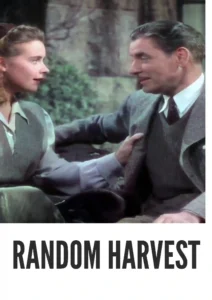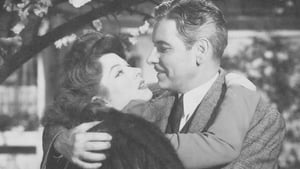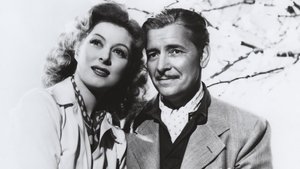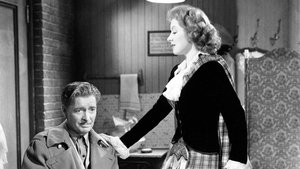Contact: info@alwanfilm.com
Video Sources 0 Views

Synopsis
Random Harvest 1942 Colorized Review: A Romantic Classic of Memory and Redemption

Introduction
Few films capture the essence of wartime romance and melodrama quite like Random Harvest (1942). Directed by Mervyn LeRoy, this film adapts James Hilton’s bestselling novel and weaves a poignant tale of love, loss, and the intricate dance between memory and identity. Set against the turbulent backdrop of post-World War I England, Random Harvest brought audiences an intense, character-driven drama that broke new ground in terms of narrative structure and emotional depth. Starring Ronald Colman and Greer Garson, the film is remembered for its complex story and memorable performances, winning widespread critical acclaim and becoming a major success at the box office.
In this article, we will explore the brilliance of Random Harvest (1942) by delving into its captivating storyline, its masterful cast performances, and its standing as a classic romantic drama. We’ll also examine the impact of its themes and the enduring influence of this beloved film.
Check The Full Colorized Movies List
Check Our Colorized Movies Trailer Channel
Understanding Random Harvest 1942 Colorized: Director, Cast, and Genre
Director’s Vision and Impact
Mervyn LeRoy, a prominent director with a reputation for tackling both light and dramatic subjects, directed Random Harvest with a refined, emotive style. Known for films like Little Caesar (1931) and Madame Curie (1943), LeRoy was skilled at bringing the emotional core of a story to life. In Random Harvest, LeRoy’s direction is marked by his attention to detail, with scenes that evoke both the devastation and beauty of post-war England. His approach emphasizes the complex emotions of his characters, allowing their journeys to unfold with remarkable subtlety.
LeRoy’s vision for Random Harvest centered on making the story relatable, focusing on the transformative power of love and memory. His direction gives the film a timeless quality, blending romance with introspective themes that appeal to a wide range of audiences.
Iconic Performances by Ronald Colman and Greer Garson
The heart of Random Harvest is undeniably the performances of its lead actors, Ronald Colman and Greer Garson. Colman plays Charles Rainier, a British soldier suffering from amnesia after a traumatic war experience. His character, vulnerable and deeply layered, is brought to life with Colman’s quiet strength and expressive delivery. Colman’s portrayal of a man lost in his own identity is a masterclass in subtlety, allowing audiences to empathize with his struggles as he attempts to reconnect with a forgotten past.
Greer Garson, playing Paula Ridgeway, provides a warm and compassionate performance. Garson’s Paula is a strong, resilient character who offers Charles stability and love in the face of his uncertainties. Their chemistry is palpable, and Garson’s performance is both endearing and powerful, capturing the resilience and hopefulness of her character. Together, Colman and Garson create a romantic dynamic that drives the film’s emotional weight, making Random Harvest an unforgettable cinematic experience.
A Romantic Drama with Timeless Appeal
Random Harvest is best classified as a romantic drama, a genre that allowed it to explore themes of love, sacrifice, and the search for identity. Unlike conventional romance films, Random Harvest is infused with elements of mystery and suspense, as the story unfolds through the lens of Charles’s amnesia and the rediscovery of his identity. The film’s structure, which combines romance with psychological complexity, set a precedent for future romantic dramas and showcased the genre’s potential for depth and sophistication.
Exploring the World of Random Harvest 1942 Colorized: Plot and Characters
Detailed Synopsis
Random Harvest begins in post-World War I England, where Charles Rainier, a British soldier, is recovering from shell shock in a mental institution. Charles suffers from amnesia, unable to remember his past life or identity. During a moment of confusion, he wanders away from the institution and encounters Paula Ridgeway (Greer Garson), a kind-hearted singer who takes him under her wing. She names him “Smithy” and helps him establish a new life, eventually falling in love and marrying him.
As the years pass, Charles slowly begins to regain fragments of his memory. When he travels to Liverpool on business, a sudden accident triggers his past memories, causing him to forget his life with Paula and revert to his former identity. Now known as Charles Rainier, he resumes his life as a wealthy and influential businessman, oblivious to his past with Paula.
In a heartbreaking twist, Paula reenters his life in an attempt to rekindle their relationship and help him remember their love. The film’s climax and resolution are emotionally charged, as Charles ultimately confronts his past, leading to a powerful conclusion that speaks to the resilience of love and memory.
Complex Characters and Memorable Supporting Roles
Random Harvest is populated with characters who are not only complex but integral to the emotional landscape of the story. Charles Rainier, as a character, embodies the themes of loss and self-discovery, while Paula Ridgeway represents love, hope, and the unbreakable bond they share. Supporting characters, such as Kitty, a young woman who falls for Charles, and Dr. Benet, who serves as a link to Charles’s past, add layers of intrigue and depth to the narrative.
Themes Explored in Random Harvest 1942 Colorized
Memory, Identity, and Redemption
One of the central themes in Random Harvest is memory—specifically, how memory shapes identity and influences the course of one’s life. Charles’s amnesia serves as a metaphor for the fractured identities of those who experienced trauma in the aftermath of World War I. The film explores how love and connection can serve as anchors for individuals facing such crises, helping them rediscover themselves and heal.
Another key theme is redemption. Both Charles and Paula undergo transformative journeys that allow them to confront their pasts and find peace. The film ultimately conveys the message that love has the power to heal and redeem, regardless of the obstacles in its way.
The Impact of War
Random Harvest also touches on the psychological impact of war, particularly the mental scars that soldiers carry with them. Charles’s shell shock and subsequent memory loss reflect the trauma experienced by countless individuals during and after the war. The film’s sensitive portrayal of these issues was ahead of its time, providing insight into the personal toll of war and emphasizing the importance of empathy and understanding.
The Art of Adapting a Novel to Film
Translating James Hilton’s Story to the Screen
Adapted from James Hilton’s 1941 novel, Random Harvest faced the challenge of condensing a complex, emotionally charged story into a two-hour film. LeRoy’s adaptation remains faithful to the novel while focusing on the essential elements that make the story resonate on screen. The screenplay, written by George Froeschel and Claudine West, carefully distills Hilton’s themes of memory, love, and identity, making them accessible to audiences without sacrificing the depth of the original material.
The film’s adaptation also demonstrates the importance of pacing in storytelling. LeRoy and his team skillfully balance moments of quiet introspection with dramatic revelations, creating a rhythm that allows the story to unfold naturally.
Reception and Awards
Random Harvest was met with widespread critical acclaim upon its release. Audiences were captivated by the film’s emotional depth, while critics praised the performances of Colman and Garson, as well as LeRoy’s direction. The film was nominated for seven Academy Awards, including Best Actor for Ronald Colman, Best Actress for Greer Garson, and Best Director for Mervyn LeRoy. Although it did not win, the nominations reflected the film’s impact and its significance within the cinematic landscape of the 1940s.
The film’s enduring popularity can also be attributed to its universal themes and timeless story. Decades after its release, Random Harvest continues to be celebrated as a classic, frequently mentioned in lists of the greatest romantic dramas of all time.
Influence and Legacy: Random Harvest 1942 Colorized’s Impact on Cinema
A Template for Romantic Drama
Random Harvest set a new standard for romantic dramas, combining an engaging plot with deeply layered characters. Its success influenced future films within the genre, inspiring filmmakers to explore romance with a greater emphasis on psychological and emotional complexity. The film’s structure, centered on memory loss and rediscovery, has since become a popular storytelling device in romantic dramas, proving the lasting appeal of Hilton’s narrative.
Legacy in Popular Culture
The film’s influence extends beyond the world of cinema. Random Harvest has left an indelible mark on popular culture, with references in literature, television, and even contemporary film. Its portrayal of love’s resilience has resonated across generations, ensuring its place as an enduring classic.
Where to Watch Random Harvest 1942 Colorized Online
For those interested in experiencing Random Harvest, the film is available on multiple streaming platforms. Popular services like Amazon Prime Video and the Turner Classic Movies app often include it in their catalog, making it accessible to modern audiences. DVD and Blu-ray editions of the film are also available, allowing viewers to appreciate the film in high quality and revisit its unforgettable story.
FAQs About Random Harvest 1942 Colorized
Q: Is Random Harvest based on a true story?
A: No, Random Harvest is a work of fiction based on James Hilton’s 1941 novel of the same name. However, the film captures themes that reflect the real emotional struggles faced by many in the aftermath of war.
Q: Did Random Harvest win any Academy Awards?
A: Random Harvest was nominated for seven Academy Awards but did not win. Despite this, it is still regarded as one of the great romantic films of its era.
Q: What makes Random Harvest a classic?
A: The film’s timeless story, exceptional performances, and exploration of universal themes like love and identity contribute to its status as a classic. It has continued to resonate with audiences, making it a beloved film in the romantic drama genre.
Conclusion
Random Harvest (1942) remains a cinematic gem, masterfully combining romance, mystery, and psychological depth. Mervyn LeRoy’s direction and the iconic performances of Ronald Colman and Greer Garson bring the film’s themes of memory, identity, and love to life. As a story of redemption and resilience, Random Harvest captures the beauty of love’s enduring power, even in the face of adversity. Whether watched for the first time or revisited as an old favorite, Random Harvest continues to captivate and inspire, solidifying its place as a timeless classic in the history of romantic cinema.

















